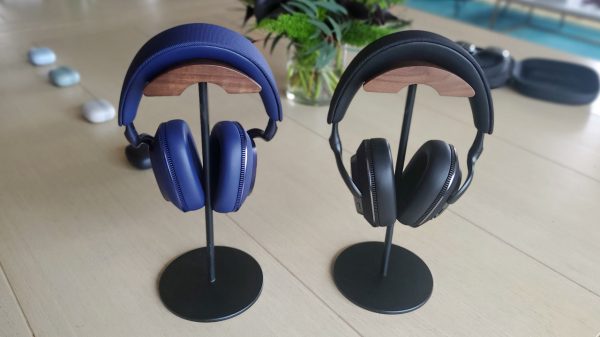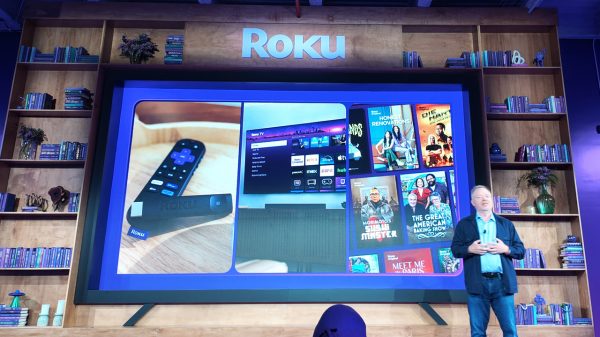Says Proposal is Inadequate in Multiple Respects and Not in the Best Interests of SanDisk’s Stockholders
SanDisk Corporation (NASDAQ: SNDK – News), the world’s largest supplier of flash storage card products, today announced that its Board of Directors confirmed that it received an unsolicited, non-binding proposal from Samsung Electronics Co., Ltd (KSE: 005930) to acquire SanDisk for $26 per share in cash. After multiple meetings with Samsung since its original indication of interest in an acquisition, SanDisk’s Board of Directors has deliberated on Samsung’s proposal with advice from its financial and legal advisors, and on September 15, 2008, sent the enclosed letter to Samsung reflecting the board’s unanimous conclusion that the proposal is inadequate in multiple respects and not in the best interests of SanDisk’s stockholders. Samsung responded by reiterating its offer to SanDisk on September 16, 2008.
As stated in its letter to Samsung, SanDisk’s Board of Directors concluded that, in its view, the proposal:
- significantly undervalues SanDisk given the long-term prospects of its business;
- does not reflect the value of the substantial synergies that Samsung can attain from an acquisition of SanDisk as shown by Samsung’s indication that it might be willing to pay a significant premium to the SanDisk $28.75 per share closing price on May 22, 2008 — the date Samsung first approached SanDisk with respect to an acquisition — and represents a 55% discount to SanDisk’s 52-week high;
- is an opportunistic attempt to take advantage of SanDisk’s current stock price, which is significantly depressed given industry cyclicality, the uncertainty resulting from the unresolved patent cross license agreement renewal with Samsung, and general equity market conditions;
- will be subject to regulatory review, an outcome that is uncertain;
- raises the possibility that the offer is a calculated negotiating ploy or an attempt to gain leverage in the ongoing licensing negotiations between the companies, particularly in light of the fact that the parties have met over 10 times on this issue since June 2007; and
- despite repeated requests by SanDisk for basic stockholder protections, does not provide adequate certainty or protection to SanDisk’s stockholders if an agreed upon transaction does not close.
Eli Harari, Chairman of the Board of SanDisk and Chief Executive Officer commented, “We believe Samsung’s proposal does not provide appropriate value to our stockholders and is opportunistically timed at the trough of an industry-wide downturn. In our view, this proposal fails to recognize the value of our patent portfolio, in particular to Samsung, our significant investments in our strategic partnerships, and our technology leadership in 3 and 4 bits per cell flash memory, advanced controllers and three dimensional (3D) semiconductor memory. We believe we have the strategy, execution record, innovation and financial resources to return to profitable growth and be the flash memory leader in new growth markets in mobile devices, solid state disk, and portable consumer electronics.”
Irwin Federman, lead independent director of SanDisk commented, “We have been and remain willing to enter into good-faith discussions with Samsung. However, due to Samsung’s unwillingness to meet fair and reasonable process conditions coupled with their desire to acquire SanDisk at a significant discount to our view of its intrinsic value, the Board believes that this proposal is not in the best interests of stockholders. Going forward, we remain committed to diligently executing against our existing business strategy and maximizing value for our stockholders.”
This communication does not constitute an offer to sell or the solicitation of an offer to buy any securities or a solicitation of any vote or approval.
Goldman Sachs and Morgan Stanley are acting as financial advisors to SanDisk’s board of directors and Skadden, Arps, Slate, Meagher & Flom LLP is acting as a legal advisor to the board of directors.
The text of the letter sent by Dr. Eli Harari to Dr. Yoon Woo Lee, Samsung’s Vice Chairman and Chief Executive Officer, on September 15, 2008 is included below:
September 15, 2008
Yoon-Woo Lee, PhD
Vice Chairman and Chief Executive Officer
Samsung Electronics Co., Ltd
Samsung Main Building
250, 2-ga, Taepyeongno
Jung-gu, Seoul 100-742
Republic of Korea
Dear Dr. Lee:
This letter confirms many of the points we raised when we met with you last week. We received your unsolicited, non-binding proposal dated August 9, 2008 to acquire SanDisk Corporation for $26 per share in cash. After a detailed review, with advice from our outside financial and legal advisors, our board of directors has unanimously concluded that your proposal significantly undervalues SanDisk given the longer-term prospects of our business and does not reflect the substantial synergies Samsung can obtain from the proposed acquisition. In addition, your proposal fails to provide adequate deal certainty, thereby exposing SanDisk and its stockholders to unacceptable risk. Finally, your approach raises the question of whether this action is simply an effort to gain leverage in the ongoing negotiations to renew our patent cross license agreement and evidences an unwillingness to engage in a process designed to legitimately protect SanDisk’s stockholders’ interests.
We acknowledge the interest that you have expressed in SanDisk over the past few months and, as expressed in the discussions we have had since May 2008, the SanDisk board of directors remains open-minded about a transaction that appropriately addresses the issues of value, deal certainty and process. However, for these and other reasons we believe your proposal is not consistent with the SanDisk board of directors’ objective of maximizing stockholder value and is not in the best interests of SanDisk’s stockholders.
VALUE
While you emphasized that your offer is a premium of 56% over the stock price on the date of your non-binding proposal, in our meeting on May 22, 2008 you implied that Samsung was prepared to pay a significant cash premium over the then $28.75 price of SanDisk’s shares. Today, SanDisk’s share price is close to its lowest price in five years, and your offer represents a 55% discount to the 52-week high. SanDisk’s stock price is significantly depressed at this time given industry cyclicality, the uncertainty resulting from our unresolved patent cross license agreement renewal with you and general equity market conditions, and therefore does not reflect the intrinsic value of SanDisk’s business.
The flash memory business is a cyclical growth market, which is characterized by periods of strong growth and profitability such as we saw between 2002 and 2007, punctuated by periods of oversupply and declining flash prices like those we are experiencing today. Our board of directors is focused on creating long-term value for our stockholders and believes that SanDisk has the right strategy and the requisite financial resources to manage through a prolonged downturn and emerge as a stronger competitor. We are taking appropriate actions to further fortify our financial position and are confident that in the longer term we will benefit when exciting new flash applications, such as storage in multimedia handsets, flash solid state drives, and new consumer portable applications fuel the next period of industry profitability and growth.
You have described on numerous occasions the significant synergies that Samsung will achieve from acquiring SanDisk, one of the reasons why we believe you were willing to pay a significant premium over the $28.75 share price on May 22, 2008. Nothing has materially changed since that date in terms of the synergies Samsung can realize from acquiring SanDisk. These include avoiding billions of dollars of royalties over the coming decade; gaining access to our x3 (three bits per cell) and x4 (four bits per cell) knowhow; owning our advanced controller technology; owning all of the leading card formats; gaining control of our revolutionary 3D (three dimensional rewritable semiconductor memory) technology – the best candidate to replace NAND flash in the coming decade; controlling our strong brand, broad retail distribution and leading market share in flash cards worldwide; and other cost and revenue synergies.
We also note that the run rate of Samsung’s royalties to SanDisk continues to grow. Our view remains that without the right to use SanDisk’s patents, Samsung’s stand-alone NAND business’ prospects would be significantly compromised. Conversely, ownership of our fundamental patent portfolio would greatly strengthen your patent position in emerging markets for flash storage like SSDs and managed NAND chipsets. We hope that your current offer is not an attempt to capitalize on the uncertainty reflected in our share price while this IP issue remains unresolved or a negotiating tactic in the licensing negotiations. SanDisk’s stockholders deserve to be fairly compensated for the value SanDisk offers Samsung, and your current offer fails to recognize and monetize this value.
DEAL CERTAINTY
From the outset, we have expressed to you our concerns about the risks to SanDisk of moving forward with a transaction with Samsung if an announced transaction does not close. We note that any transaction between SanDisk and Samsung will be subject to regulatory review, including in the United States and the European Union. In addition, any announcement of a transaction with you could also have a negative impact on our business due to various factors. The simple, but important, point is that without both maximum certainty of closing as well as a viable path for SanDisk to continue as an independent entity should the transaction not close despite your best efforts, your proposal creates unacceptable risks for our stockholders and is not in their best interests.
Because of this, we have proposed negotiating a replacement cross license and supply agreement, both of which would become effective in August 2009 if an announced transaction does not close. We have also requested that you commit to certain terms to ensure that a transaction has maximum certainty of closing. Despite our repeated requests Samsung has failed to address these legitimate concerns.
PROCESS
We have been clear that together with price, these critical issues of deal certainty and risk mitigation must be addressed before we provide you due diligence access to the highly confidential and competitively sensitive information that you have requested. We note that there are sizeable synergies in this transaction for Samsung, most of which you control and can determine without access to confidential information. In addition, given that Samsung operates in the same industry and that SanDisk is a public company, we are confident that Samsung possesses the necessary information to address the issues we have highlighted above prior to gaining access to confidential information. However, despite our many attempts, including those by our lead outside director, Mr. Irwin Federman, to communicate the importance of these process issues and offering a reasonable roadmap by which we both can address them, you have rejected our guidance and instead insisted on access to highly confidential information about SanDisk before these issues are resolved.
CONCLUSION
The members of the SanDisk board of directors have taken, and will continue to take, their responsibilities to SanDisk’s stockholders extremely seriously. We remain committed to the goal of maximizing stockholder value. As Mr. Federman has said to you on multiple occasions, including in our recent meeting in Seoul, on September 11, 2008, the SanDisk board of directors is open minded about a transaction with Samsung if it represents a price that recognizes the long-term intrinsic value of SanDisk and the significant synergies that accrue to Samsung, provides deal certainty to SanDisk and can be conducted in a process that adequately protects the interests of SanDisk’s stockholders. Samsung’s current offer and approach falls well short on all counts. As such, we respectfully reject your proposal.
Very truly yours,
Eli Harari, PhD
Chairman of the Board and Chief Executive Officer
Forward-Looking Statements
This news release contains certain forward-looking statements, including statements about our business prospects and outlook that are based on our current expectations and involve numerous risks and uncertainties that may cause these forward-looking statements to be inaccurate and may significantly and adversely affect our business, financial condition and results of operations. Risks that may cause these forward-looking statements to be inaccurate include among others:
- there can be no assurance that any corporate or other transaction with Samsung or any other party will be negotiated or consummated;
- we can provide no assurance as to whether any required regulatory approvals can be obtained;
- enforcing our patent rights may involve litigation and other uncertainties whose resolution can not be predicted;
- our license agreement with Samsung expires in 2009 and we can not provide any assurance as to the effect of the end of our existing license term on our financial results;
- slower than expected, or no, growth in market demand for our products including our solid state drives, or a slower adoption rate for our products in current and new markets that we are targeting including the mobile phone market,
- future average selling price erosion that may be more severe than our expectations due to decreased demand or excess industry supply of flash memory from ourselves as well as from existing suppliers or from new competitors,
- continued excess industry-wide supply to meet demand,
- adverse global economic and geo-political conditions, including continued declines in the global economy, particularly in the U.S. and Europe, or continued adverse currency exchange rates particularly related to the Japanese yen,
- any interruption of or delay in supply from any of the semiconductor manufacturing or subcontracting facilities, including test and assembly facilities that supply products to us,
- slower than expected expansion of our global sales channels,
- fluctuations in operating results, unexpected yield variances and delays related to our conversion to 43-nanometer NAND flash technology or the ramp-up of the 300 millimeter flash fabrication facility,
- unexpected yield variances in, or delays related to the ramp-up of, 3-bits per cell manufacturing,
- lower than expected growth in the average megabyte capacity per card,
- fluctuations in license and royalty revenues,
- higher than anticipated operating expenses,
- lower margins due to increased use of non-captive supply,
- failure to develop commercially viable rewritable 3D memory technology in a timely and cost-effective manner,
- business interruption due to earthquakes, hurricanes or other natural disasters, particularly in areas in the Pacific Rim and Japan where we manufacture and assemble products,
- adverse results in litigation or regulatory actions affecting us, and other risks detailed from time-to-time under the caption “Risk Factors” and elsewhere in our Securities and Exchange Commission filings and reports, including, but not limited to, our Annual Report on Form 10-K for the fiscal year ended December 30, 2007 and our Forms 10-Q. Future results may differ materially from those previously reported. We undertake no obligation to update these forward looking statements, which speak only as of the date hereof.
About SanDisk
SanDisk Corporation, the inventor and world’s largest supplier of flash storage cards, is a global leader in flash memory — from research, manufacturing and product design to consumer branding and retail distribution. SanDisk’s product portfolio includes flash memory cards for mobile phones, digital cameras and camcorders, digital audio/video players, USB flash drives for consumers and the enterprise, embedded memory for mobile devices, and solid state drives for computers. SanDisk (www.sandisk.com/corporate) is a Silicon Valley-based S&P 500 company, with more than half its sales outside the United States.
SanDisk, and the SanDisk logo are trademarks of SanDisk Corporation, registered in the United States and other countries.























